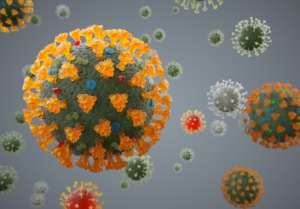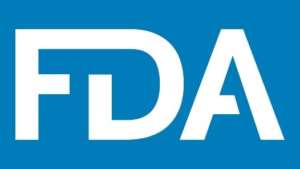 A Comprehensive Review
A Comprehensive Review
My last installment discussed observations regarding long overdue changes to Title 21 needed to promote innovation and flexibility in response to local, regional and global stressors such as the current COVID-19 pandemic. While we await legislative acts that will hopefully modify and modernize Title 21, this installment will highlight some of the temporary actions taken by the U.S. Food and Drug Administration (FDA), under the current construct, to aggressively respond to the realities of COVID-19.
Emergency Use Authorization (EUA) Program Activation
The FDA issued the first of many public statements on the coronavirus in late January 2020 announcing their high level response plan to industry and the public. The announcement included an indication of their intent to utilize the only real organizational tool they possess to adapt to emerging situations. The FDA commissioner has the authority to bypass the standard approval process, and allow release of unapproved therapeutics, diagnostics and devices via emergency use authorization (EUA). This tool was designed to be used when the risk of a lack of products, outweighs the risk of the supply of products that have not been fully vetted in accordance to the standard approval requirements.
Since that time, the FDA has approved many critical EUAs, including, but not limited to:
- 56 EUAs for the production or re-engineering of in vitro COVID diagnostic test and platforms.
- 24 EUAs for the development and use of molecular laboratory-based COVID testing methods.
- 13 EUAs for the production of ventilators and other critical care medical devices.
- 10 EUAs for the production and supply of Personal Protective Equipment (PPE).
- 4 EUAs for serological tests.
- 2 EUAs for the decontamination of N95 respirators to extend their life.
- 2 EUAs for potentially effective off-label use of approved therapeutic treatments.
- An EUA for at-home COVID diagnostic testing.
- An EUA to adapt approved severe acute respiratory syndrome (SARS)antibody testing methods and equipment in previously approved laboratories to be used to test for COVID antibodies.
Creation of the Coronavirus Treatment Acceleration Program (CTAP)

The FDA created the Coronavirus Treatment Acceleration Program (CTAP) to use every available method to bring new treatments to patients as quickly as possible, abbreviating but theoretically not compromising the existing clinical trial methods.
As of late April 2020, this program incorporates 72 active trials of therapeutic agents and 211 development programs for therapeutic agents in the planning stages.
This program involves:
- Triaging requests from developers and scientists seeking to develop or evaluate new drug and biologic therapies, generally securing FDA resources to address the request within a day.
- Providing rapid, interactive input on most development plans and prioritizing them on demonstrable merits and development stage.
- Providing rapid protocol review, some within a day.
- Providing immediate and 24-hour resourcing to the review of single patient expanded access requests.
- Working closely with applicants and other regulatory agencies to expedite quality assessments for candidate products and for their production plans.
Guidance, Enforcement and Actions

The FDA has an enormous amount of discretion under the current structure of Title 21, and they communicate their internal and non-legally binding policies on use of that discretion through the issuance of guidance documents to industry. The pace of release of these policy documents has dramatically increased since January 2020.
- Surveillance and warning letters to companies marketing fraudulent COVID products.
- Using their enforcement discretion to elect not object to the New York State Department of Health (NYSDOH) authorization of certain laboratories in the state to begin patient testing after validating their tests and notifying the NYSDOH in lieu of pursuing federal EUAs.
- Issuing a guidance electing to extend that discretion to all other state health departments, putting in place a policy for states to take responsibility for tests developed and used by laboratories in their states.
- Issuing a temporary policy to help prevent disruptions in the food supply chain by electing not to enforce the portions of the Food Safety Modernization Act (FSMA) that require on-site audits of suppliers.
- Issuing guidance to enable continuation of non-COVID related clinical trials by allowing alternate trial participant assessment (remote) methods.
- Instituting a policy to allow manufacturers of certain cleared non-invasive, vital sign-measuring devices to expand their use so that health care providers can use them to monitor patients remotely.
- Issuing two guidance documents to communicate its intent to temporarily not require approval of certain alcohol-based hand sanitizer products.
- Issuing a guidance modifying current policies regarding donor eligibility criteria. These changes are being put forth for immediate implementation and are expected to remain in place after the COVID-19 pandemic ends.
Partnerships
The FDA has always integrated with partner agencies on information, but the extent to which those partnerships have been utilized has increased and become critical to the integrated national response.
- Integrating with several critical partners, including the Centers for Disease Control and Prevention (CDC), the National Institutes of Health (NIH) and foreign regulatory bodies to raise the visibility of potentially meaningful data and trends.
- Integrating with the White House Coronavirus Task Force to disseminate information about promising off-label uses of drugs we already have and investigating their effectiveness in treating COVID-19.
- Facilitating the development of, and access to, convalescent plasma with more than 1,040 sites and 950 physician investigators to participate in the Mayo Clinic-led expanded-access protocol.
- Launching a website to guide recovered COVID patients to local blood or plasma collection centers to discuss their eligibility and potentially schedule an appointment to donate
- Working directly with private sector manufacturers and philanthropic organizations, such as The Gates Foundation, to direct investment of capital and resources into the most promising projects.
Active Supply Chain Surveillance
Under normal circumstances, the FDA plays a passive role for monitoring potential supply chain disruptions. Title 21 requires that manufacturers of drugs (but not devices) notify the FDA of impending product shortages. Upon notification, the role of the FDA is limited to providing public notification. The agency has no role to play in pro-actively monitoring conditions that may cause these shortages, or in resolving them. And most significantly, the legal requirement for notification of the agency, did not extend to medical device manufacturers. Under the current crisis conditions, the FDA has proactively integrated with the private sector to play a more active role in predicting and mitigating product shortages. The following are among the most significant actions that they have taken:
- Dedicating resources to work domestically and with foreign partners to identify and predict potential product shortages and to work with manufacturers to expedite the review and approval of alternate suppliers.
- Proactively contacting foreign manufacturers of critical medical devices suppliers to seek information regarding shortages or potential disruptions.
Ongoing Needs and Far-Reaching Impacts
There will be ample time to look back and measure the success of the agency’s efforts to balance the risk of action and inaction when the immediate danger to the public has passed, and to review all of the knowledge acquired. However, there are some aspects of the FDA’s pandemic-specific (temporary) actions and more importantly, of those not-taken that suggest the following topics will need to be addressed in the very near term.
Some of these include:
- Defining strategies for the processes required to remove products from the marketplace (or make the EUAs permanent) upon expiration of the associated EUAs.
- Defining the impact of ceasing or delaying foreign and domestic inspections because of COVID-19 travel restrictions.
- Identifying which temporary actions may be extended into the future or implemented permanently.
- Strategies for dealing with or predicting the extent of supply chain reductions due to resourcing demands made on the agency by COVID-19 response efforts
Enacting Permanent Change
It is imperative that once the immediate danger passes that we take the opportunity to conduct in-depth analysis of not only the agency’s actions taken in response to COVID 19. At the same time, it’s critical that we also evaluate 21 CFR’s capacity (or lack thereof) to enable authorities to swiftly and effectively function during a public health crisis.
A post-COVID-19 response analysis should minimally include identifying:
- Actions that resulted in positive outcomes.
- Actions that consumed resources without having impact.
- Actions 21 CFR prohibited without a presidential executive order.
- Impacts to normal agency operations and schedules.
- Potential weaknesses of 21 CFR that expose the supply chain to vulnerability.
The results of the evaluation should be used to define and implement permanent changes to the federal code. Those much-needed modifications will help us move toward a regulatory model that builds redundancy into the supply chain and provides procedures to act swiftly during a medical crisis rather than relying solely on executive orders or individual use of temporary emergency powers.
© Coda Corp USA 2020. All rights reserved.
__________________________
Author:
Gina Guido-Redden
COO, Coda Corp USA
 Gina Guido-Redden is a quality and regulatory professional with over 25 years of domestic and international industry experience. She is the co-founder and chief operations officer of Coda Corp USA, which provides consultancy services to pharmaceutical, biologics and medical device firms.
Gina Guido-Redden is a quality and regulatory professional with over 25 years of domestic and international industry experience. She is the co-founder and chief operations officer of Coda Corp USA, which provides consultancy services to pharmaceutical, biologics and medical device firms.
Guido-Redden’s history specializes in the areas of facility start up, regulatory compliance and remediation, quality system development, mentorship and training, quality system design, and implementation and management.
She is also a quality systems subject matter expert (SME), frequent seminar presenter, and content contributor to industry publications, including GAMP’s White Paper on Part 11, The Journal of Validation Technology, New Generation Pharmaceuticals, Computer Validation Digest, and MasterControl’s GxP Lifeline. Coda Corp USA is an enterprise partner of MasterControl.

 NAVIGATION
NAVIGATION
